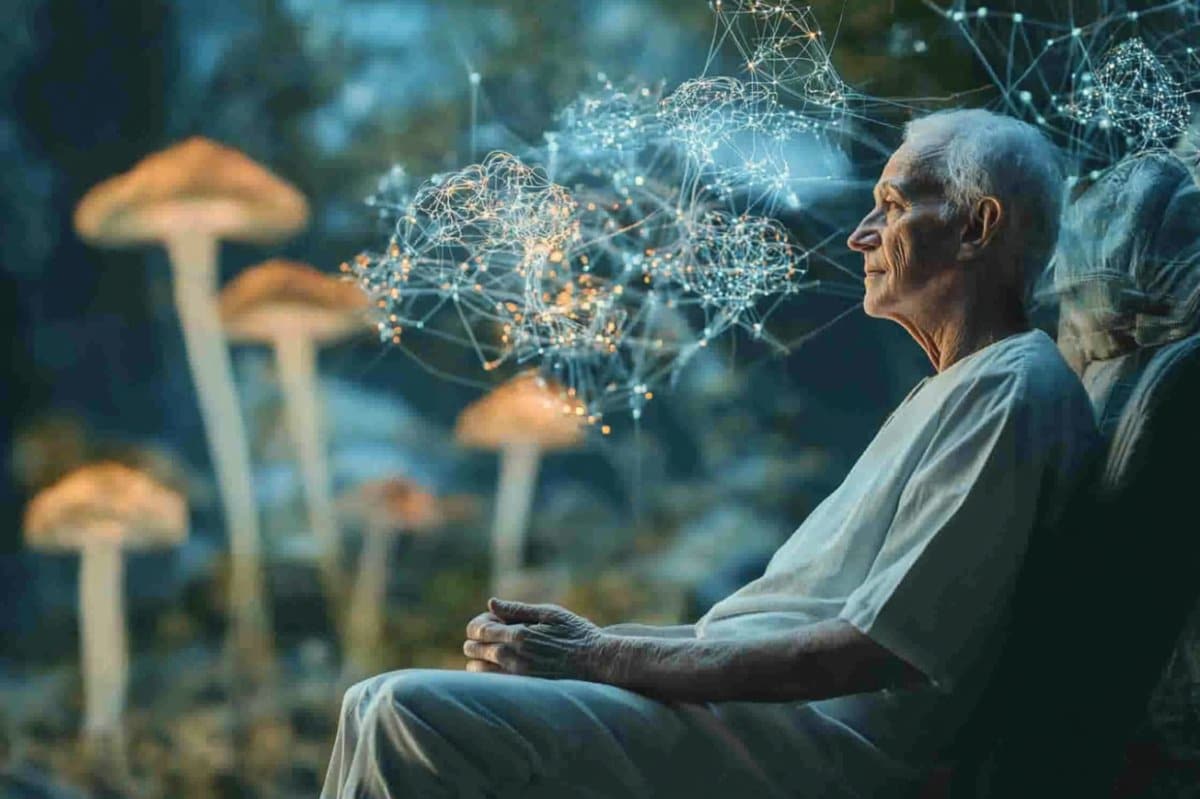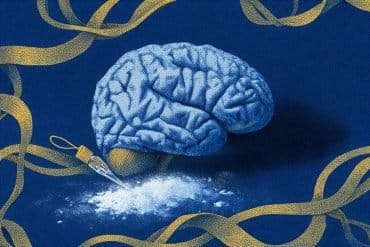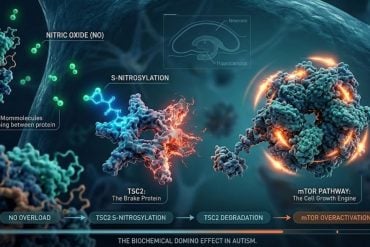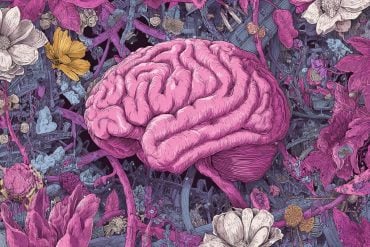Summary: A new pilot study reveals that psilocybin—the compound found in psychedelic mushrooms—may significantly improve mood, cognition, and motor function in people with Parkinson’s disease. The compound was well tolerated, with only mild side effects, and benefits persisted for weeks after dosing.
While the study was primarily designed to test safety, researchers observed meaningful and lasting improvements in multiple symptoms. The findings suggest psilocybin may enhance neuroplasticity and reduce inflammation, helping the brain heal itself.
Key Facts:
- Sustained Benefits: Improvements in mood, cognition, and movement lasted for weeks.
- Safe and Well Tolerated: Mild side effects reported, but no serious adverse events.
- Next Phase: A larger, multi-site trial will explore underlying mechanisms like neuroplasticity.
Source: UCSF
Psilocybin, a natural compound found in certain mushrooms, has shown promise in treating depression and anxiety.
UC San Francisco researchers wanted to know if it could be used to help Parkinson’s patients who often experience debilitating mood dysfunction in addition to their motor symptoms and don’t respond well to antidepressants or other medications.
The results were surprising.

Not only did participants tolerate the drug without serious side effects or worsening symptoms, which is what the pilot study was designed to test, they also experienced clinically significant improvements in mood, cognition, and motor function that lasted for weeks after the drug was out of their systems.
It is the first time a psychedelic has been tested on patients with any neurodegenerative disease.
“We are still in very early stages of this work, but this first study went well beyond what we expected,” said the paper’s first author, Ellen Bradley, MD, assistant professor and associate director of UCSF’s Translational Psychedelic Research Program (TrPR).
“Many people don’t realize this, but mood symptoms in Parkinson’s are linked to a faster physical decline,” she said.
“And they are actually a stronger predictor of patients’ quality of life with Parkinson’s than their motor symptoms.”
Researchers in the TrPR Program, within UCSF’s Department of Psychiatry and Behavioral Sciences and the Department of Neurology, teamed up to lead this project, which was funded by an anonymous donor.
The findings appeared online earlier this month in Neuropsychopharmacology.
Psilocybin’s lasting mood and motor effects
Parkinson’s disease, a progressive neurodegenerative disorder characterized by uncontrolled movements due to abnormal brain activity, affects about 1 million Americans.
While medications like levodopa can relieve symptoms, there are no approved therapies to slow the progression or reverse the disease itself.
Common early physical symptoms include tremors and foot dragging, but Bradley said anxiety and depression in patients with no history of psychiatric problems often precede the onset of motor symptoms by several years.
It’s unclear why standard medications often don’t work well for these patients, but mood changes could be part of the neurodegenerative disease process.
To test the safety of psilocybin for these patients, the researchers gave seven men and five women with mild to moderate Parkinson’s disease a 10 mg dose, followed two weeks later by a higher dose of 25 mg.
The patients completed psychotherapy sessions before and after the psilocybin — eight sessions in total — and were evaluated for changes in mood, cognition, and motor functions.
While nearly all participants experienced some adverse events while on the psilocybin, such as anxiety, nausea, and elevated blood pressure, these were not serious enough to require medical intervention.
The participants had meaningful improvements in their mood, cognition, and motor symptoms at both their one-week and one-month follow-up appointments.
The team evaluated the participants’ mood again three months after their psilocybin sessions and found it was still significantly improved.
The researchers suggested a variety of explanations for the improvements. The beneficial impact of psilocybin on the patients’ mood could have led to better cognitive and motor functions.
For example, people feel better, and that, in turn, helps them socialize and become more active – both key elements of Parkinson’s treatment.
Another theory is that psilocybin could provide relief from multiple symptoms of the disease by reducing inflammation and promoting neuroplasticity – the growth and reconnection of brain cells involved in mood, cognition, and movement regulation.
An expansion into unchartered territory
The results of this pilot study were promising enough that the researchers are conducting a larger randomized controlled trial at UCSF, enrolling a larger and more diverse group of patients.
The second study incorporates noninvasive brain stimulation, neuroimaging and other tools to understand how psilocybin impacts inflammation and neuroplasticity.
It will include a second site at Yale University, with the aim of enrolling 100 participants. This work will be funded by the same anonymous donor that paid for the safety pilot as well as by the Michael J. Fox Foundation for Parkinson’s Research.
“The vast majority of brain diseases still lack interventions that change the course of illness,” said the study’s senior author, Joshua Woolley, MD, PhD, associate professor at UCSF and director of the TrPR Program.
“We can often treat the symptoms, but we don’t alter the trajectory or prevent decline. Now, that’s beginning to change. These results raise the exciting possibility that psilocybin may help the brain repair itself.”
Authors: Additional co-authors include Kimberly Sakai, BA, Gisele Fernandes-Osterhold, MFT, Balázs Szigeti, PhD, Connie Ludwig, PhD, Jill L. Ostrem, MD, Caroline M. Tanner, MD, PhD, Meredith A. Block, MD, Katia Llerena, PhD, Patrick R. Finley, PharmD, Aoife O’Donovan, PhD, Jose Rafael P. Zuzuarregui, MD, Amber McKernan, BA, Andrew D. Penn, NP, Aliss C.C. Wang, MFT, and Raymond C. Rosen, PhD.
Funding: The trial was funded by an anonymous donor.
About this Parkinson’s disease and neuropharmacology research news
Author: Victoria Colliver
Source: UCSF
Contact: Victoria Colliver – UCSF
Image: The image is credited to Neuroscience News
Original Research: Open access.
“Psilocybin therapy for mood dysfunction in Parkinson’s disease: an open-label pilot trial” by Ellen Bradley, et al. Neuropsychopharmacology
Abstract
Psilocybin therapy for mood dysfunction in Parkinson’s disease: an open-label pilot trial
Mood dysfunction is highly prevalent in Parkinson’s disease (PD), a main predictor of functional decline, and difficult to treat—novel interventions are critically needed.
Psilocybin shows early promise for treating depression and anxiety, but its potential in PD is unknown, as safety concerns have excluded people with neurodegenerative disease from previous trials.
In this open-label pilot (NCT04932434), we examined the feasibility of psilocybin therapy among people with mild to moderate stage PD plus depression and/or anxiety. 12 participants (mean age 63.2 ± 8.2 years, 5 women) received psilocybin (one 10 mg followed by one 25 mg dose) with psychotherapy.
There were no serious adverse events, no medical interventions required to manage effects of psilocybin, and no exacerbation of psychosis.
Ten participants experienced treatment-emergent adverse events; the most frequent were anxiety, nausea, and increased blood pressure.
We observed no worsening of PD symptomology measured by the Movement Disorder Society Unified Parkinson’s Disease Rating Scale (MDS-UPDRS).
On the contrary, non-motor (MDS-UPDRS Part I: –13.8 ± 1.3, p < 0.001, Hedges’ g = 3.0) and motor symptoms (Part II: –7.5 ± 0.9, p < 0.001, g = 1.2; Part III: –4.6 ± 1.3, p = 0.001; g = 0.3) as well as performance in select cognitive domains (Paired Associates Learning [-0.44 ± 0.14, p = .003, g = 0.4], Spatial Working Memory [–0.52 ± 0.17, p = 0.003, g = 0.7], and Probabilistic Reversal Learning [2.9 ± 0.9, p = 0.003, g = 1.3]) improved post-treatment, and improvements were sustained until the final safety assessment one month following drug exposure.
Baseline Montgomery-Asberg Depression Rating Scale (MADRS) and Hamilton Anxiety Rating Scale (HAM-A) scores were 21.0 ± 8.7 and 17.0 ± 3.7, respectively.
Both improved to a clinically meaningful degree post-treatment; these improvements persisted to the final assessment three months following drug exposure (MADRS: -9.3 ± 2.7, p = .001, g = 1.0; HAM-A: –3.8 ± 1.7; p = 0.031, g = 0.7).
This study provides the first data on psilocybin’s effects in any neurodegenerative disease. Results suggest that psilocybin therapy in PD warrants further investigation.







